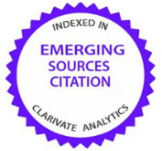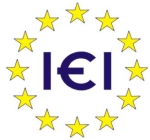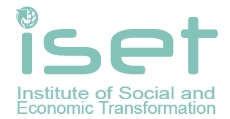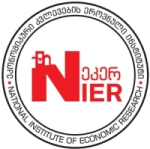Innovation modernization of Ukraine’s economy taking into consideration the EU’s expirience
Abstract
Introduction. At the beginning of the 21st century, most Western countries, faced with the need to find ways to grow, began to realize that the post-industrial economy can no longer act as a reliable foundation for economic development. It should be noted that Ukraine's place in world innovation processes does not yet match the potential of the country. Lack of funding for research and development, especially fundamental science, will lead to further outflow of highly skilled scientific personnel, loss of prospects for the growth of national competitiveness on world markets of innovative products and irreversible lagging behind developed countries.
Aim and tasks. The aim of the research is to develop the general provisions of the systematic study of the patterns of innovation development of European countries in the context of global transformations and to justify on this basis the directions of innovation modernization of the Ukrainian economy.
Results. Three fundamentally different variants of development of economic systems are determined depending on the choice of technological basis of economic growth. The prerequisites for formation of the strategy of innovation modernization of the Ukrainian economy are substantiated, namely: resource support; technological update; institutional support; development of infrastructure and regulatory support; strengthening of business reputation and access to the foreign market; increase of competitiveness of Ukrainian enterprises in the world market of goods and services. The model of innovative modernization of economic development with the account of the experience of the EU member states as a form of private-public partnership with the use of science-intensive technologies (on technological platforms) is offered.
Conclusions. According to the results, it is determined that the effective system of innovative modernization of the Ukrainian economy has not yet been formed. The following areas are suggested for the urgent directions of solving this problem: fundamental development and theoretical substantiation of the types of public-private partnership; ensuring transparency of the system of stimulation of domestic innovation projects; formation of a stable information field, which includes a set of data on a number of issues that arise (between private, state and mixed structures), as well as in the process of generating and using financial resources for the purpose of innovative development of the domestic economy.
Keywords:
innovation development, economic system, European countries, modernization of economy.References
2. Lutskiv, O. (2015) Areas of interaction between Ukraine and the EU in the innovation sphere: expert commentary. State Enterprise Institute of Regional Studies M.I. Dolishni NAS of Ukraine. Lviv.[in Ukraine]
3. Mazaraki, A. (ed.). (2018). Ukrainian economy growth imperatives. Prague: Coretex CZ SE.
4. Atkinson, R. D. (2013). Competitiveness, Innovation and Productivity: Clearing up the Confusion. Washington, DC: The Information Technology & Innovation Foundation.
5. Nelson, R. (2000). National innovation systems. In: Z. Acs (Ed.), Regional Innovation, Knowledge and Global Change (pp. 11–26). London: Pinter.
6. Kaiser, R., & Prange, H. (2004). The reconfiguration of national innovation systems –the example of German biotechnology. Research Policy, 33(3), 395-408.
7. Dosi, G., Pavitt, K., & Soete, L. (1990). The economics of technical change and international trade. LEM Book Series.
8. Nadiri M. (1993). Innovations and Technological Spillovers. NBER Workin Paper. No 4423. 27-33. DOI: 10.3386/w4423
9. Godin, B. (2006). The linear model of innovation: The historical construction of an analytical framework. Science, Technology, & Human Values, 31(6), 639-667.
10. Heyets, V. (2017) Why is it time to start from the beginning? Ukraine economy, 5-6, 31-38 [in Ukraine].
11. Duginets, G. (2018). Global Value Chains. КYIV: KNUTE [in Ukraine].
12. Kvasha, О. (2016). Innovative development of economy of Ukraine: world experience and recommendations is for Ukraine. Scientific herald of Uzhgorod National University. Series: International Economic Relations and World Economy, 6 (1), 150-154 [in Ukraine].
13. Маrchuk, L. (2011). Foreign models of innovative economic development: choice for imitation. Economy and region,2 (29), 200-204 [in Ukraine].
14. Koval, V. (2019). Institutional determinants of state policy to regulate services markets. Social and legal aspects of the development of civil society institutions (pp.109-125). Part II.BMT Erida Sp. z o.o., Poland.
15. Koval, V., & Weis, L. (2019). State regulation and investment management in the development of circular economy. Sustainable development under the conditions of European integration (pp. 296-309). Part I. Ljubljana: VŠPV, Ljubljana School of Business.
16. Dyer, A. R. (2016). Madness as Metaphor: Therapeutic Implications of Post-Critical Thought. Tradition and Discovery: The Polanyi Society Periodical, 42(4), 23-33. DOI: 10.5840/traddisc201642430.
17. Malmberg, A., & Maskell, P. (2018). Localised capabilities and industrial competitiveness. In Voices from the North (pp. 11-28). Routledge.
18. OECD (2011). The International Experience with R&D Tax Incentives. Tax Reform Options: Incentives for Innovation. Testimony by the Organization for Economic Cooperation and Development. United States Senate Committee on Finance.
19. European Commission (2018). Innovation Statistic. Eurostat Yearbook online. Retrieved from http://epp.eurostat.ec.europa.eu/statistics_explained/index.php/Innovation_statistics.
20. Atkinson, R. D. (2015). An Easy Checkoff for Global Competitiveness: The Case for a US Innovation Box. Information Technology and Innovation Foundation.

This work is licensed under a Creative Commons Attribution-NonCommercial 4.0 International License.
If the article is accepted for publication in the journal «Economics. Ecology. Socium» the author must sign an agreementon transfer of copyright. The agreement is sent to the postal (original) or e-mail address (scanned copy) of the journal editions.





















